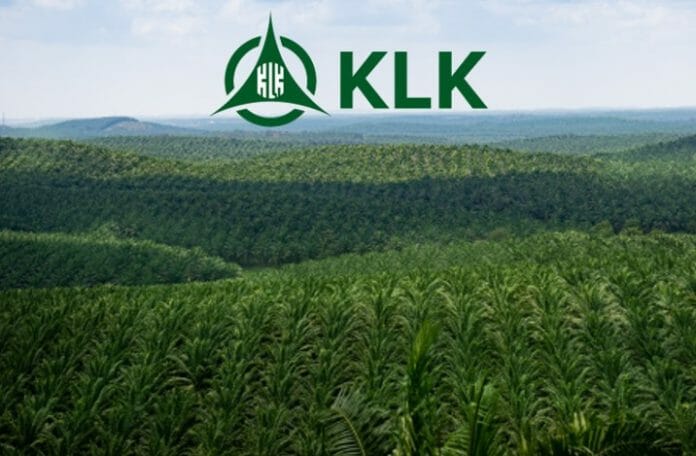Kenanga Research maintained a NEUTRAL stance on the Malaysian plantation sector as the palm oil output and exports are usually lower in the beginning of the year, but exports were stronger than expected in January.
“January 2024 palm oil output of 1.402 million metric tons (MT) was down by 10% month-on-month (MoM) but improved 2% year-on-year (YoY), coming in within 2% of ours and 3% of consensus’ estimates.
“Therefore, end-Jan inventory dipped to 2.02 million MT, down 12% MoM, down 11% YoY, 3% lower than Kenanga as well as market forecasts.
“Given average CPO price of RM3,784, an increase of 3% MoM, decrease of 4% YoY in January 2024, we are keeping average crude palm oil (CPO) price of RM3,800 per MT for 2024 to 2025 intact,” it said in its Sector Update today.
However, it said that exports were stronger than expected, up by 1% MoM as well as 19% higher (YoY) or 9% and 10% above Kenanga and market estimates.
The research house maintained NEUTRAL for the sector as 1.2x price to book value (PBV) is supportive against further substantial downside.
“However, there is no strong upside lift either. Longer term, the plantation sector can be defensive as palm oil is largely consumed as food
despite growing use as biofuel and its players’ gearings are manageable.
“Besides that, the value of agriculture land, especially those along the west coast of Peninsular Malaysia, are often significantly higher than
their book value,” it said.
Kenanga said there is a tight edible outlook for 2024 (CY24), with supply matching demand or possibly dipping into a small deficit.
“Therefore, 2024 is expected to end the year with inventory coming in below the level it started at. All in all, a tight year with 2024 to 2025 CPO prices likely to trade range bound and averaging around RM3,800 per MT.
“The main issue is demand for edible oil which is underpinned mainly by population and income growth is expected to continue growing at 3% to 4% YoY but supply is affected by tightening regulation, unpredictable weather and even geopolitical disruptions.
“Specifically for palm oil, Indonesia, the top producer and also user, looks set to manage exports till Hari Raya in April while India, a big palm oil importer, is likely to maintain generous levels of inventory pending an election in the first half of this year.
“Meanwhile, the growth in palm oil supply has moderated on falling yields, largely on ageing trees as well as slower new planting.”
Kenanga also expected a margin improvement on CPO prices coupled with lower input costs.
“Fertiliser and energy prices are now 30% to 40% below last year’s level while fresh fruit bunches (FFB) yield is improving in Malaysia as the return of guest workers has allowed for more timely harvesting, collection of loose fruit (very oil-rich) and overall better upkeep of the estates.”
It added the demand for palm kernel (PK), a by-product of CPO production, could be stabilising with a modest PK price recovery in late-2024 or 2025 despite seeing soft price since mid-CY22.
“Higher PK prices will translate to lowering the production cost of CPO.”
Kenanga said within the sector, it prefer growth over income for the next 3 to 6 months, with top pick being Kuala Lumpur Kepong Berhad (KLK) (OP; TP: RM24.50) given its good track record and expansion potentials in both upstream and downstream beyond Malaysia.
“In December 2023, KLK acquired substantial stakes, around 90% to 92% in two oil palm estates, spanning 7,173 hectares (Ha), managing for its parent company Batu Kawan Bhd.
“Then in early February 2024, KLK bought out the remaining 4.57% equity in IJM Plantations which it does not own. IJM Plantations Berhad (now KLK Sawit Nusantara) operates about 62,000 Ha of planted oil palm area.
“KLK also offers more value compared to other large market cap integrated peers.”
It said other player in the sector, PPB Group Berhad (OP; TP: RM18.40) on FY24F earnings recovery on decent associate Wilmar’s earnings as well as its own businesses in regional flour, feed and film exhibition whilst trading lower than market price-earnings ratio (PER) and below book value.
On the other hand, TSH Resources Berhad (OP; TP: RM1.30), after having de-geared substantially, is back in expansion mode.
“It has started development work to plant 8,000 to 10,000 Ha, a 20% to 25% expansion, over the coming 2 to 3 years. Concurrently, it is also exploring carbon-trading or other carbon related opportunities in the region.









